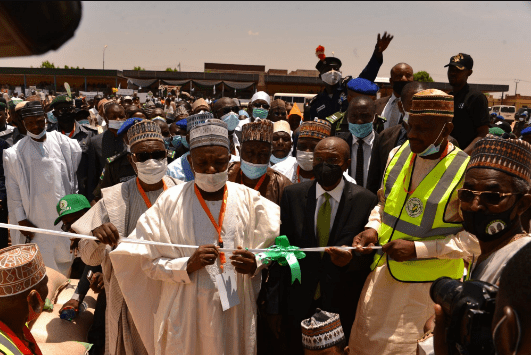The Governor, Central Bank of Nigeria (CBN), Godwin Emefiele has vowed to resist maize importation.
Emefiele spoke at the unveiling of the first maize pyramid and flag-off of the 2021 Maize wet season farming under the CBN-Maize Association of Nigeria (MAAN) Anchor Borrowers’ Programme, in Kastina, on Wednesday.
He urged Nigerian youths to embrace agriculture, assuring that the bank was ready to support them in the sector, according to a statement by the bank.
Emefiele said that the CBN would resist attempts by those who seek to continually import maize into the country, noting that maize farmers in Nigeria had what it takes to close the maize demand gap of over 4.5 million metric tonnes in the country.
“With over 50,000 bags of maize available on this ground, and others aggregated across the country, maize farmers are sending a resounding message that we can grow enough maize to meet the country’s demand,” he said.
Emefiele explained that the maize unveiled at the ceremony would be sold to reputable feed processors, adding that this would in turn impact positively on current poultry feed prices, as over 60% of maize produced in the country was used for producing poultry feed.
Justifying the Bank’s continued strategic intervention in the value chains of focal crops, he said, “CBN is leading the revolution because the impact of our monetary policy measures is limited.”
He disclosed that the bank and MAAN sought to increase the target for 2021 to 500,000 hectares from the 2020 target of 250,000 hectares, adding that to achieve the target, CBN sought to introduce the use of contiguous land, high yielding seeds, mechanization, leveraging technology for land mapping and monitoring as well as expanding the Strategic Maize Reserve (SMR).
So far, he said the bank had released 100,000 metric tonnes of maize to the market, through the major producers.
Emefiele, therefore, urged all stakeholders to sustain the current efforts to galvanize agricultural production to meet the requirements of Nigeria’s growing population, stressing that the nation could not continue to dwell on the neglect of past years if it was determined to realize the national target of producing what Nigerians eat and eating what is produced in Nigeria.
